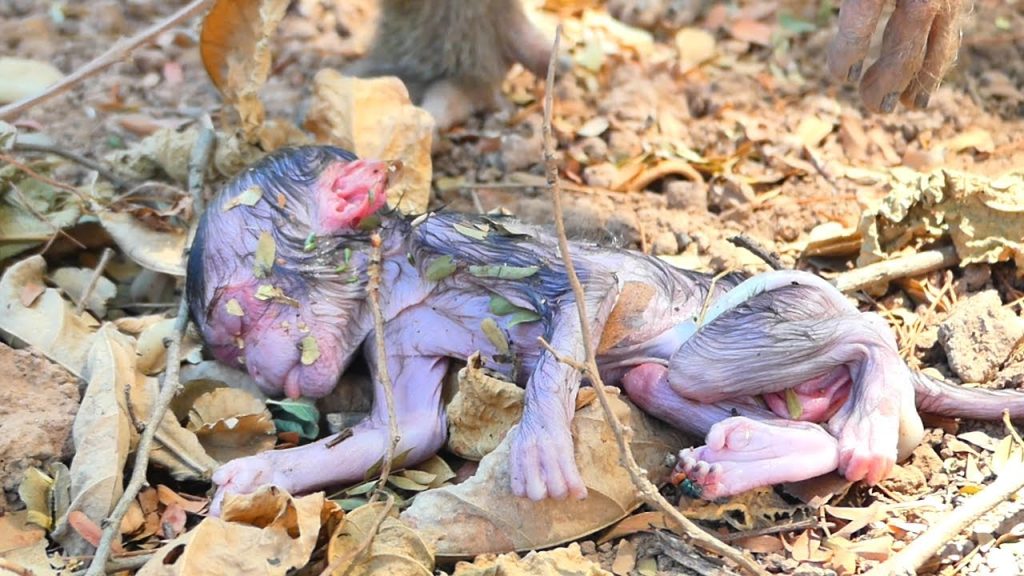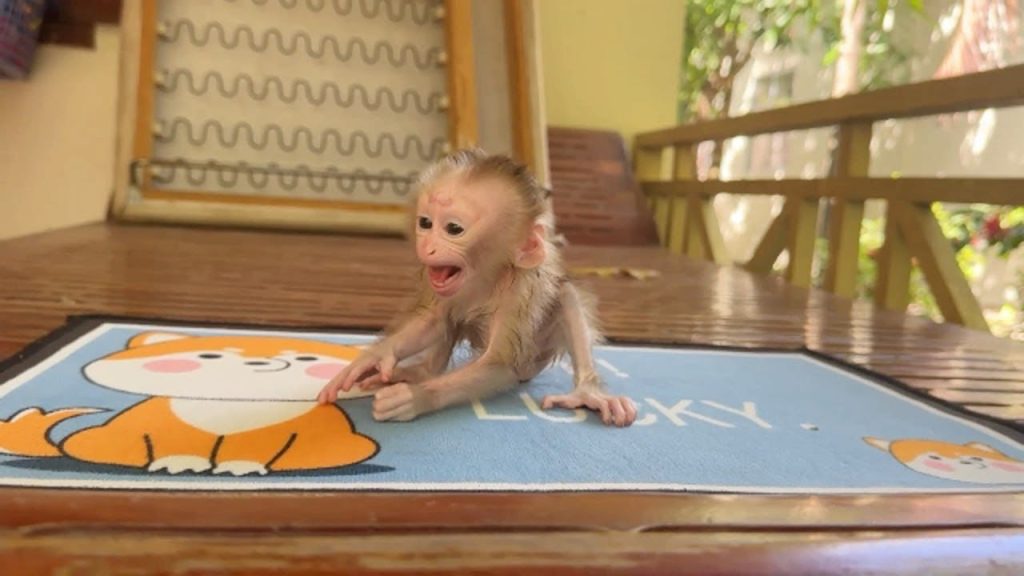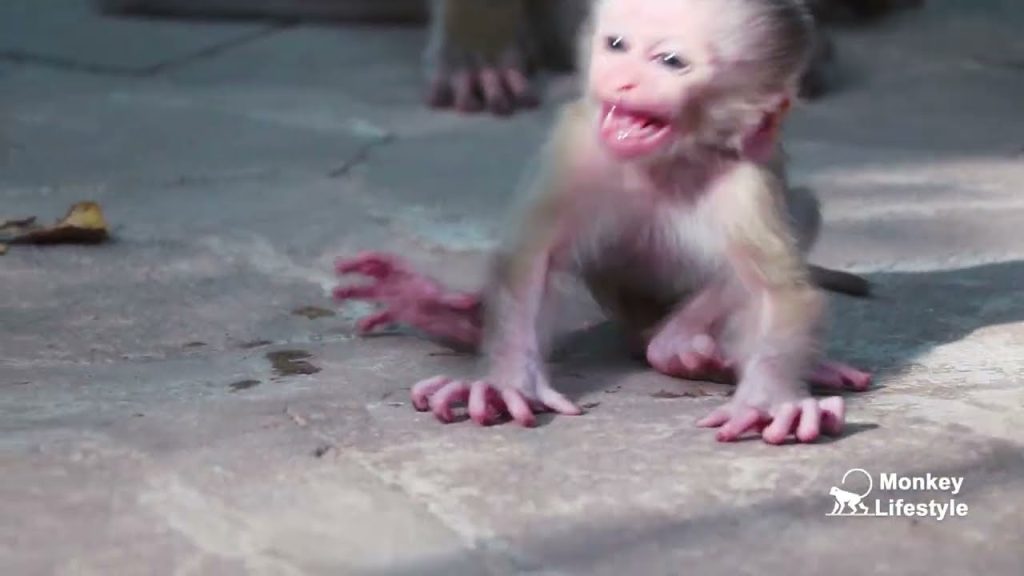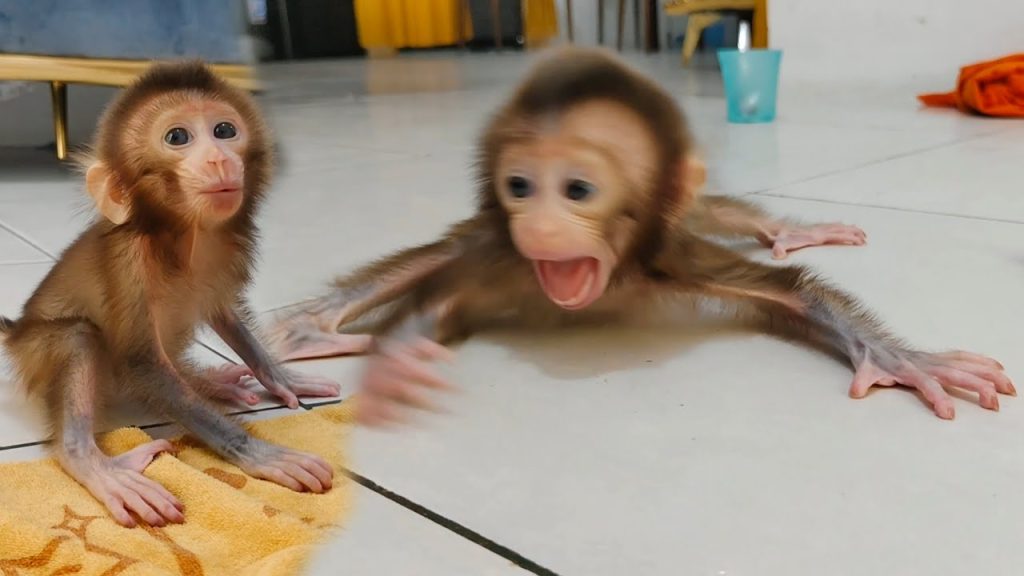
In a quiet corner of the rescue center’s garden, Emila, a gentle mother monkey, sat with her arms wrapped around herself. Her eyes stared into the grass, unmoving, her breath slow and silent. She had just given birth—but her baby had not survived.
Only hours earlier, Emila had gone through labor with hope and instinct guiding her. Caregivers stood nearby, quietly praying for a smooth delivery. When the tiny baby finally arrived, Emila cradled it close, nuzzling and licking its soft fur, whispering her love in the only way she knew how.
But the baby’s breath never came.
At first, Emila didn’t understand. She continued to groom and hold her baby, waiting for movement, for a sound, for life. Caretakers gently approached, tears in their own eyes, trying to help her let go. But Emila clung tightly to the little one, unwilling to believe that her first and only baby was gone.
Hours passed. The sun began to set. Emila finally placed the baby beside her and sat quietly, her head bowed low. She didn’t eat. She didn’t move. Other monkeys watched from a distance, respectful of her pain.
The caregivers placed a soft cloth nearby, and one of them knelt beside her. “We’re so sorry, Emila,” the woman whispered, placing a comforting hand close—but not touching.
Emila stayed by the cloth for the rest of the evening. Her sadness was deep, wordless, but felt by everyone.
Grief doesn’t speak in words. It speaks in the silence between heartbeats, in the absence of tiny cries, in the way a mother monkey clutches her chest long after her baby is gone.
That night, under the stars, Emila finally slept—but her heart would take time to heal.


